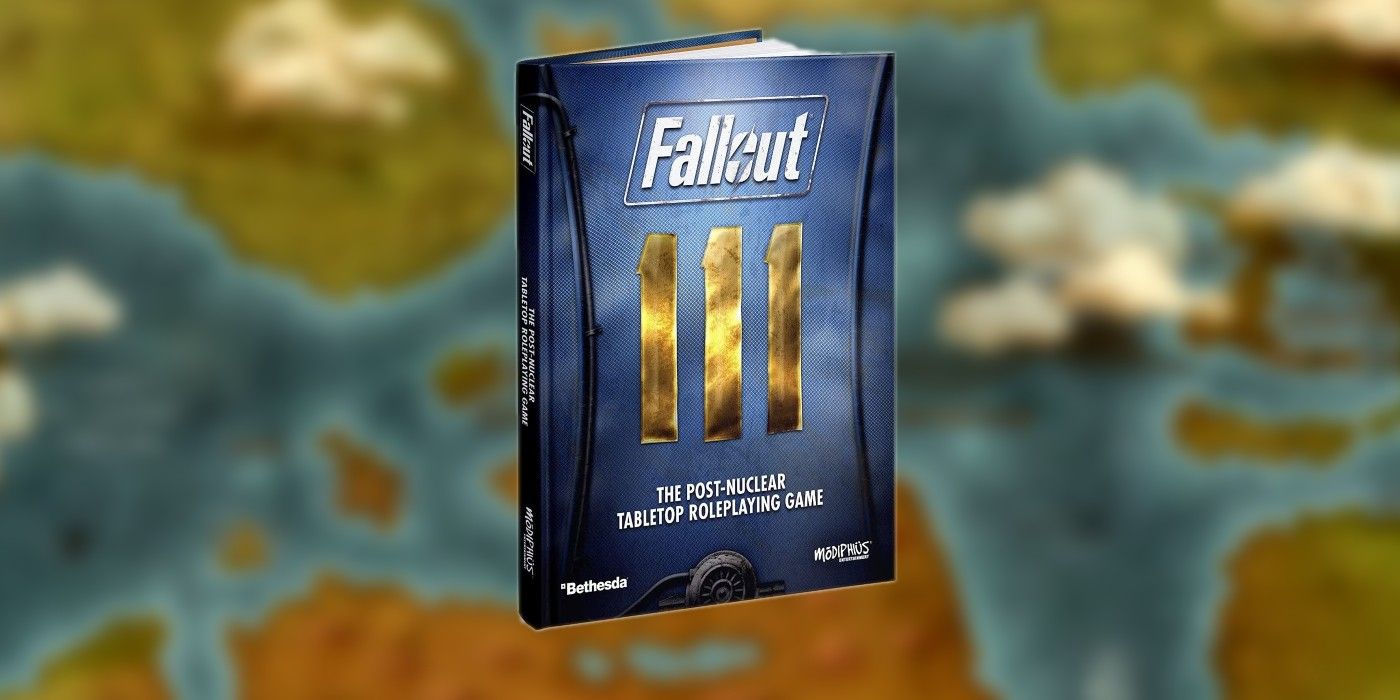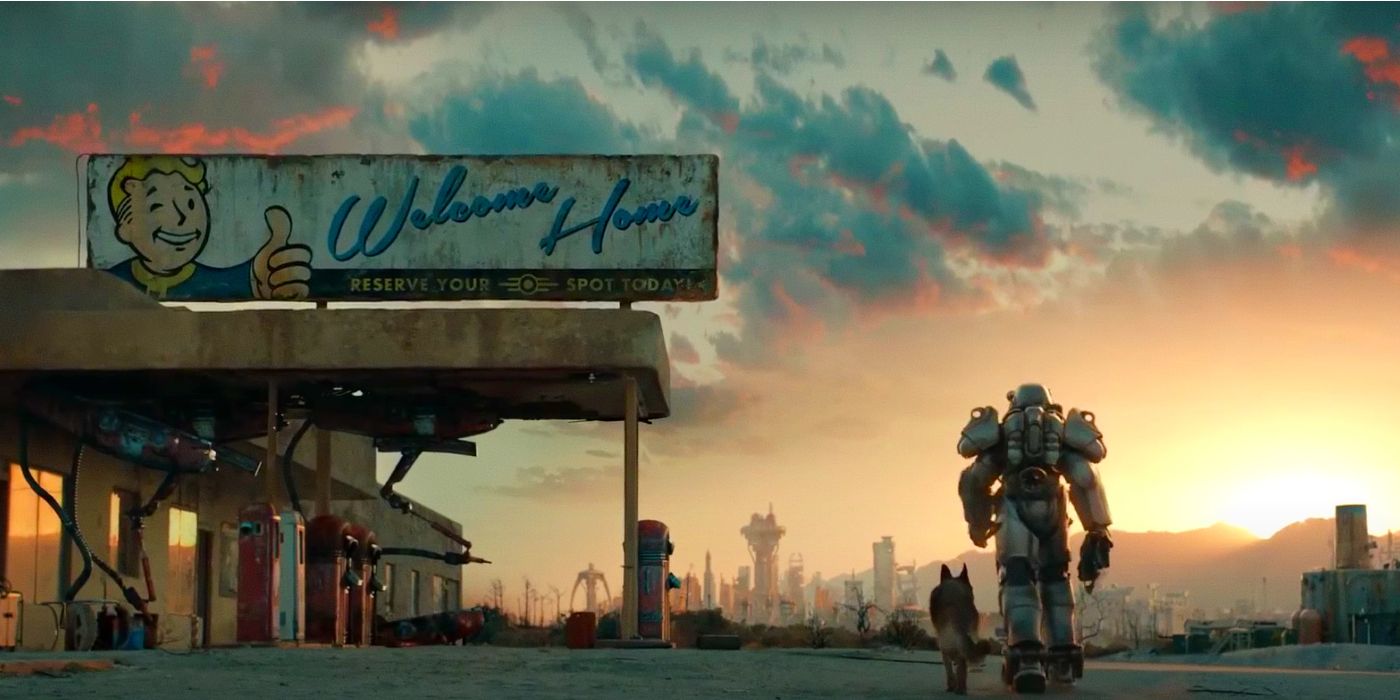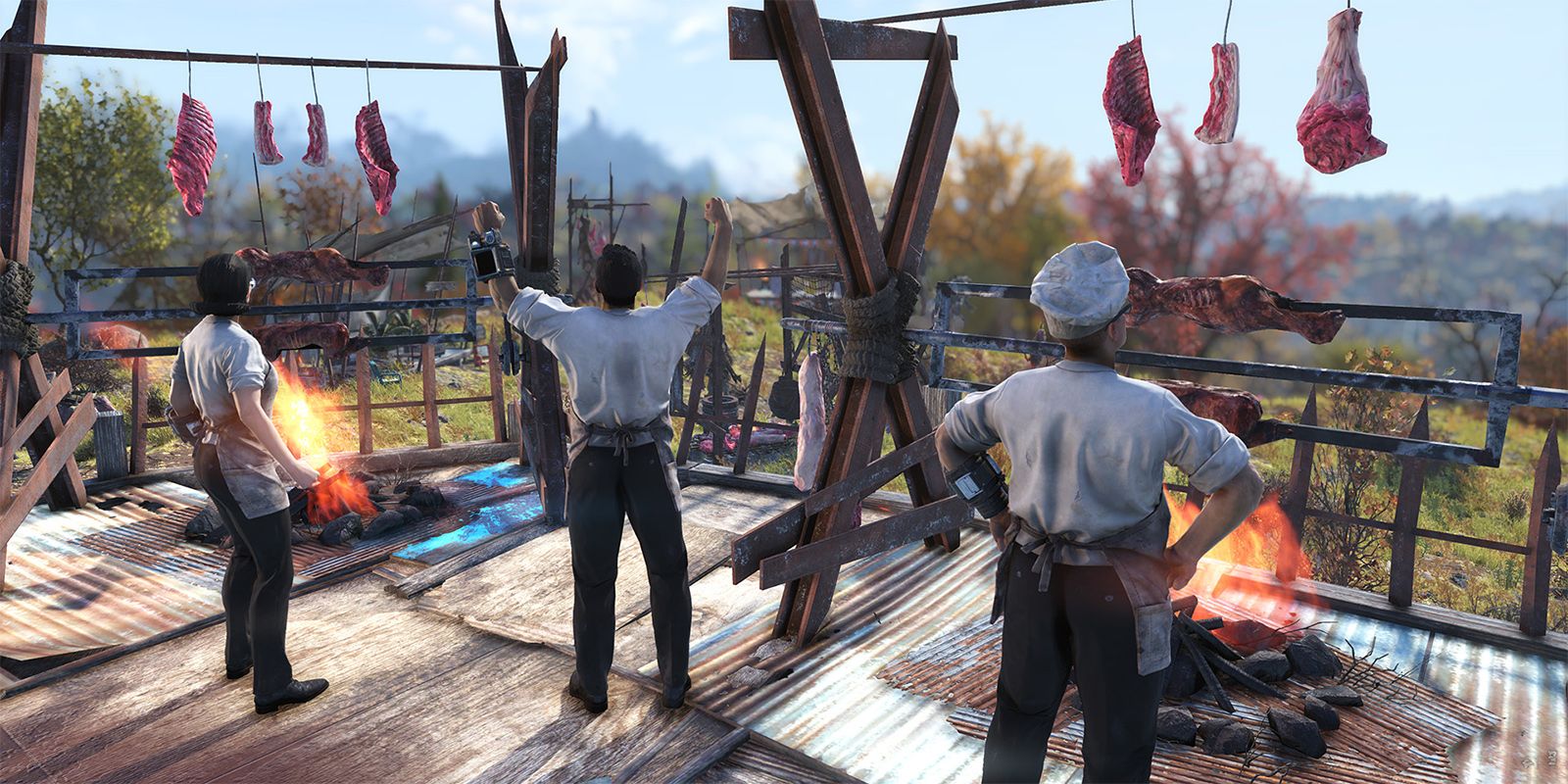
With the explosive popularity of Dungeons & Dragons 5th Edition, spurred on by its simplified ruleset and its plethora of live-play shows and podcasts, it's no surprise that other RPG properties want what 5th Edition has. This was likely the inspiration behind Bethesda's Fallout: The Roleplaying Game, released digitally March 31st, 2021 and physically on August 5th of the same year. Created by Modiphius, a company known for making tabletop RPGs from popular properties such as Conan the Barbarian and Star Trek, Fallout: The Roleplaying Game posits itself as the definitive Fallout tabletop experience, following years of dormancy from the original proposed Fallout PnP d20 game.
With an estimated 9.5 million players playing D&D 5e, many may be seeking a change of pace while simultaneously being wary of the other tabletop RPG systems out there differing too much from the system they know and love. The success of fantasy video games such as The Elder Scrolls V: Skyrim and The Witcher series have contributed to the success of Dungeons & Dragons 5e, and players may desire the same from the Fallout franchise.
The major difference between D&D 5e and Fallout: The Roleplaying Game is the systems they run on. In D&D 5e, when making a skill check, players roll a twenty-sided die, or d20, add the requisite bonuses they get from given skills and proficiencies, and the dungeon master compares their total to the challenge rating set for that skill check - typically a number between 5 and 30. This system is referred to by Wizards of the Coast as the d20 system. Fallout: The Roleplaying Game uses a slightly different system known as the 2d20 system.

The major difference in the Fallout tabletop system is the goal for a player's roll. Unlike in D&D, difficulty is set on a scale of 1 to 5, representing how many successes are needed to pass. The number a player must roll is decided by their attribute and skill - for example, Charisma and Speech. If a player's Charisma is 7 and Speech is 2, the player adds the scores together, and has to roll below that total, a 9, to pass. If the difficulty is set to a 2, the player rolls 2 d20s and if both are below 9, it's considered a success. Above that, players will have to expend Action Points - granted by their Agility stat - to add more dice to their pool, increasing their odds to succeed. In Fallout: The Roleplaying Game, lower rolls are the aim of the game, even having a mirrored system to Dungeons and Dragons' critical success and critical failure system - a natural 1 is a critical success and a natural 20 is a critical failure.
Fallout's character creation brings about a lot of potential for creativity. Rather than choosing a race for the character at creation, a feature that has received some criticisms in D&D, players instead choose a background which decides traits, granting benefits and penalties for that character as well as deciding any mutations they might have, such as becoming a ghoul, a super mutant, or even if they're a robot, in the case of the very unique Mr. Handy background. From there, players choose their S.P.E.C.I.A.L. stats, similar to the Ability Scores of Dungeons & Dragons. Strength, Perception, Endurance, Charisma, Intelligence, Agility, and Luck all start with 5 points, and players are granted an additional 5 points to spend across the various attributes.
Unlike in Dungeons & Dragons, skills relating to these stats are decided by choosing Tag Skills, a mainstay from the Fallout franchise that allows players to "tag" skills their character is especially proficient in and buy skill ranks. From there, players get to choose a perk and a pack of starting equipment based on their background. The lack of proper classes and races makes for some very creative possibilities in Fallout: The Roleplaying Game, as the character's abilities in and out of combat are based entirely on the player's choices of perks and skills.

Dungeons & Dragons has only rarely used firearms, whether it be in Tasha's Cauldron of Everything adding special feats to make their use easier for players in settings with firearms or Matt Mercer's custom Fighter subclass, the Gunslinger. Ranged combat has mostly been focused on spell-slinging and archery. Fallout: The Tabletop Game provides gunplay as the main source of combat, scratching an itch many players were trying to fulfill in 5e. All of the Fallout 4 mainstays for weaponry are back in the Tabletop Game, from .44 Magnums to the explosive Fat Man, in addition to weapon mods to personalize the experience even further. And Paladins and Fighters need not worry - Fallout: The Tabletop Game provides a vast arsenal of melee weapons, from the simple wrench to the rocket-propelled hammer, the Super Sledge.
Crafting has been an aspect of Dungeons & Dragons that players have been demanding for much of 5e's tenure. Crafting rules have often been an afterthought, as shops and loot tables are expected to grant players what they need more so than players building it themselves. Fallout: The Tabletop Game makes crafting a major aspect of gameplay, with the book even spelling out specific recipes for specific items, such as D&D-like healing items, chems, and weapon mods. This focus on crafting sparks imagination in players - that peeling aluminum siding on the dilapidated shack is no longer just set dressing, it's now a tangible resource that players can invoke into crafting items. A game master can use the crafting rules to increase difficulty - the best weapons and armor may not be available from the merchants the party typically goes to, forcing players to instead scavenge for resources and build it all themselves.
Fallout: The Roleplaying Game may differ from Dungeons & Dragons 5e in a lot of ways, between its gun-focused combat, its 2d20 system versus the classic d20 system, and a character creation process with no classes, but will certainly appeal to D&D players who have been seeking a new way to play. Between new ways to act in combat, the complete freedom that building a character provides, being able to be an adventuring party traversing through post-apocalyptic America, and clear focus on a crafting system, Fallout: The Roleplaying Game is worth a try for any game night seeking a new tabletop experience without losing a little bit of the roleplaying magic from Dungeons & Dragons.
from ScreenRant - Feed https://ift.tt/2YMxIBE


0 Comments